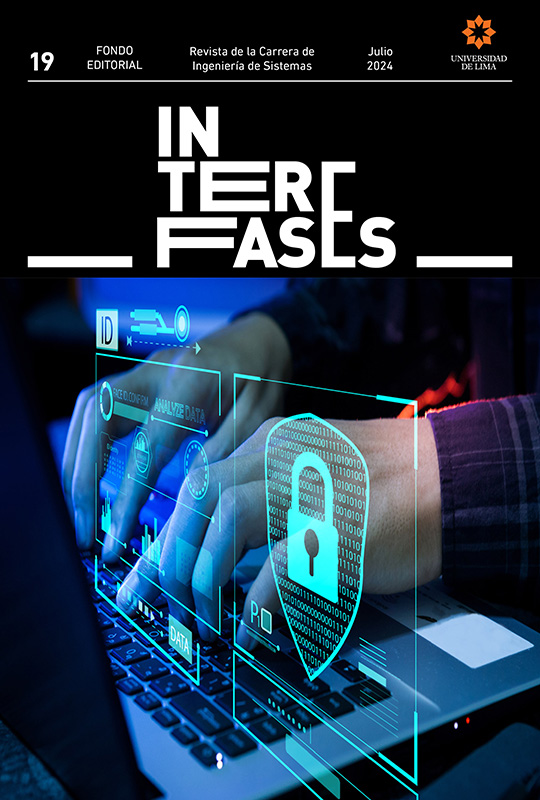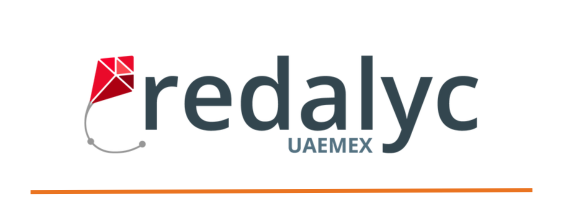Overview of Peruvian women in STEM careers
DOI:
https://doi.org/10.26439/interfases2024.n19.6686Keywords:
STEM careers, women in STEM, Minedu and Digesu databaseAbstract
This article provides an overview of the participation of Peruvian women in various STEM (science, technology, engineering, and mathematics) careers at licensed universities in Peru. It presents an analysis of data collected from the Ministry of Education (Minedu) and the General Directorate of University Higher Education (Digesu) for the period 2017-2022, focusing on the participation of women and men in different STEM careers across the regions of Peru. Including women in these careers represents a challenge that begins at the school level, where the aim is to promote digital learning as a tool that allows girls and adolescents to explore disciplines related to science, technology, engineering, and mathematics practically, thus empowering them to decide to pursue a university career related to STEM in the future. The analysis shows a progressive increase in the participation of women in STEM careers between 2017 and 2022, which is certainly encouraging.
Downloads
References
Bello, A. (2020). Las mujeres en ciencias, tecnología, ingeniería y matemáticas en América Latina y el Caribe. ONU Mujeres. https://lac.unwomen.org/es/digiteca/publicaciones/2020/09/mujeres-en-ciencia-tecnologia-ingenieria-y-matematicas-en-america-latina-y-el-caribe
Dávila, G., Guzmán, I., Quintanilla, C., & Maciel, C. (2022). Venciendo los desafíos para la inclusión de mujeres en STEM. Actas del Congreso Internacional de Ingeniería de Sistemas, 44-47. https://doi.org/10.26439/ciis2022.6067
Duke Escobar, V. G., Torres Sigüenza, J. O., García Perdido, M. U., & Toledo Martínez, C. S. (2021). Factores que inciden en la elección de carreras STEM en la educación universitaria de El Salvador. Anuario de Investigación: Universidad Católica de El Salvador, 10, 23-38. https://doi.org/10.5377/aiunicaes.v10i1.12487
Garduño, E., & Reyes, A. (2022). Mujeres y educación en STEM: una mirada con perspectiva de género. Apuntes para México. Mujeres Unidas por la Educación - Movimiento STEM. https://www.movimientostem.org/wp-content/uploads/2022/02/Mujeres-y-educacion-en-STEM-una-mirada-con-perspectiva-de-genero.pdf
Kochhar, K., & Dabla-Norris, E. (2018, 20 de noviembre). Las mujeres, la tecnología y el futuro del trabajo. IMF Blog. https://www.imf.org/es/Blogs/Articles/2018/11/16/blog-Women-Technology-the-Future-of-Work
Hernández Herrera, C. A. (2021). Las mujeres STEM y sus apreciaciones sobre su transitar por la carrera universitaria. Nova Scientia, 13(27), 26. https://doi.org/10.21640/ns.v13i27.2753
López Simó, V., Couso Lagarón, D., & Simarro Rodríguez, C. (2020). Educación STEM en y para el mundo digital: el papel de las herramientas digitales en el desempeño de prácticas científicas, ingenieriles y matemáticas. Revista de Educación a Distancia (RED), 20(62). https://doi.org/10.6018/red.410011
Ministerio de Educación - Dirección General de Educación Superior Universitaria. (2023). Sistema de Recolección de Información para Educación Superior (SIRIES).
Ministerio de Educación. (2023). La universidad en cifras. https://repositorio.minedu.gob.pe/bitstream/handle/20.500.12799/9077/La%20Universidad%20en%20Cifras.pdf?sequence=1&isAllowed=y
Moncada, F. C. (2017). Perspectivas de jóvenes universitarios sobre la educación superior: una visión intercultural. Revista Psicológica Herediana, 9(1-2), 34. https://doi.org/10.20453/rph.v9i1-2.3004
Razo Godínez, M. L. (2008). La inserción de las mujeres en las carreras de ingeniería y tecnología. Perfiles Educativos, 30(121), 63-96. http://www.scielo.org.mx/scielo.php?script=sci_arttext&pid=S0185-26982008000300004&lng=es&tlng=es
STEM para todas. (2023). https://www.stemparatodas2023.org
Valero-Matas, J. A., & Coca Jiménez, P. (2021). La percepción de las materias STEM en estudiantes de primaria y secundaria. Sociología y Tecnociencia, 11(Extra 1), 116-138. https://revistas.uva.es/index.php/sociotecno/article/view/5144/3799
Vivar, F. (2023). La ciencia no tiene género. En Dirección de Comunicaciones e Imagen Institucional de la Universidad del Pacífico (Ed.), Desde la academia. Retos para la mujer peruana (p. 6). https://www.up.edu.pe/prensa/noticias/up-publica-desde-la-academia-8m
Downloads
Published
Issue
Section
License
Authors who publish with this journal agree to the following terms:
Authors retain copyright and grant the journal right of first publication with the work simultaneously licensed under an Attribution 4.0 International (CC BY 4.0) License. that allows others to share the work with an acknowledgement of the work's authorship and initial publication in this journal.
Authors are able to enter into separate, additional contractual arrangements for the non-exclusive distribution of the journal's published version of the work (e.g., post it to an institutional repository or publish it in a book), with an acknowledgement of its initial publication in this journal.
Authors are permitted and encouraged to post their work online (e.g., in institutional repositories or on their website) prior to and during the submission process, as it can lead to productive exchanges, as well as earlier and greater citation of published work (See The Effect of Open Access).
Last updated 03/05/21






